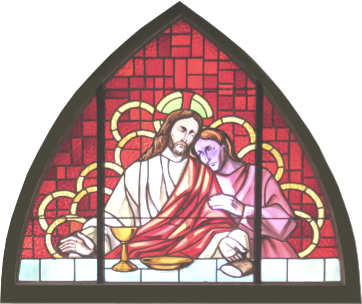Written by Dr. Eusebio Koh
Past Grand Knight: Santo Nino Council #12415
May 4, 2014
On April 27, 2014, the Divine Mercy Sunday, two recent but most deserving popes, John XXIII and John Paul II, were canonized by Pope Francis in front of almost a million enthusiastic spectators which included retired Pope Benedict XVI and numerous dignitaries from around the world. In his homily during mass at St. Peter’s Square, Pope Francis praised the new saints as “men of courage and mercy who worked with the Holy Spirit in renewing and updating the church in keeping the features brought to her over the centuries.”
This was a most astonishing occasion not merely because two popes were canonized in the presence of two other popes but because of the haste and urgency to get the canonization done. Sainthood has often taken decades if not centuries to achieve partly because of the difficulty to confirm the basic requirement of two attributed miracles.
In St. John XXIII’s case, the second miracle was waived in light of his tremendous accomplishment of the Vatican II. In St John Paul II’s case, the waiting period after a candidate’s demise was waived and the process of canonization was expedited.
Pope Francis praised St. John XXIII for “his openness to the Holy Spirit” and allowing himself to be led as a “pastor, servant-leader” in this task.
Vatican II opened the Church to modern times and also reached back to biblical times by stressing the central role of the Sacred Scripture in our devotion. Bible study continues to be part of the activities of priest and parishioners.
St. John XXIII, through the Second Vatican Council, has modernized our Church and brought it closer to us. We feel part and parcel of the Church. With the priest facing us and speaking our vernacular, we feel we belong to the same family. Our Church is a church of love and respect and is quite inclusive. So much so that we do not hesitate to serve in the Eucharist and the liturgy in any way we can.
It is believed that Pope John XXIII saved the world from nuclear war during the Cuban Missile Crisis of 1962. With the United States under President John F. Kennedy ready to blockade the Soviet Union from bringing nuclear missiles to Cuba, the pope made an impassioned plea over the Vatican Radio: “We beg all rulers not to be deaf to the cry of humanity.” This allowed Nikita Krushchev to back down and call back the Soviet fleet without disgrace. For his efforts and call for world peace, Time magazine named Pope John XXIII as “Man of the Year.”
Pope Francis praised and characterized St. John Paul II as “the pope of the family” and invoked the guidance of the new saints in the upcoming synods of the bishops on the family in October this year and in 2015.
Pope John Paul II had one of the longer and more successful papacy (1978-2005). He had involved himself in international affairs and had probably travelled the most to other countries. He went further than Pope John XXIII in bridging the gaps between the church and the other faiths, namely Judaism, the Church of England, the Eastern Orthodox Church, the Protestant Churches and even the Dalai Lama. It is believed that he played a behind-the-scene part in bringing down communism. In 2004, he was awarded the Presidential Medal of Freedom by President George W. Bush for his “principled stand for peace and freedom”.
The choice of holding the canonization on Divine Mercy Sunday was meaningful especially for St John Paul II who instituted the observance in the Catholic universal calendar. In the year 2000 at the Mass for the canonization of St. Faustina Kowalska, he proclaimed the second Sunday after Easter as the Divine Mercy Sunday. St. Faustina, coming from a poor Polish family, was a sister of the Congregation of Sisters of our Lady of Mercy. She claimed to have been visited by Jesus. By some coincidence, Pope John Paul II passed away in 2005 on the vigil of the Feast of Divine Mercy. As well, he was beatified in 2011 on Divine Mercy Sunday.
We have two great Church leaders in Pope John XXIII and Pope John Paul II and they richly deserved to be canonized.


